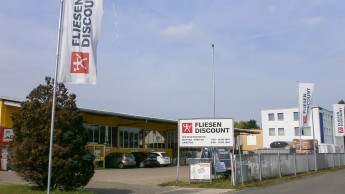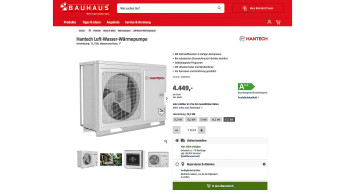It is quite possible that 35 years of Praktiker history will come to an end at a stroke this very autumn. What was formerly the second-largest German DIY chain is facing its demise. At the same time Max Bahr, previously the group’s highly esteemed subsidiary, is also doomed to close down along with Praktiker. Though the former would actually be able to survive were it not for certain obstacles that are making any acquisition difficult for investors. While it is true that Praktiker succeeded in increasing sales by around 500 per cent between 1990 and 2012 (see table), retail area grew nearly tenfold. Sales per square metre remained in a permanent nosedive as a consequence, falling by nearly half from 1990 to 2012. The reasons for this development are many and diverse. What led to the chronic infirmity of Praktiker was not so much the market forces in Germany and eastern Europe, which obviously affected the competition as well, as mainly home-grown problems: the wrong strategic repositioning as a ‘genuine’ DIY store (to get away from the ‘cheap’ image), catastrophic marketing measures (including a 20 per cent discount on the entire range), a lack of continuity at the top. It has been apparent since the year 2000 that Praktiker was getting into increasingly serious difficulties. The acquisition of Max Bahr in 2007 was only of assistance in the short term. Insiders say that Praktiker made use of the subsidiary’s valuable assets to make its own figures look better than they were for years. Then, when the big financial and economic crisis that started in 2008 also squeezed consumer behaviour downward in the east European countries where Praktiker was expanding, the profits of the group’s stores abroad, which had so far been flourishing, collapsed as well. One of the external reasons for the Praktiker malady was that the company had to pay clearly exorbitant rates of rent for its properties to its own parent company, Metro AG. This is a problem that the company, which has been officially insolvent since the beginning of October 2013, has also had to combat in connection with its subsidiary, Max Bahr. Its properties are owned by the Royal Bank of Scotland (RBS), which is in turn hanging on to ideas about rent that potential investors call “horrendous”. And yet interest in the stores does definitely exist. That applies both to the subsidiary company Max Bahr as a whole (plus a not so small number of Praktiker DIY stores, which could be rebadged to Max Bahrs) and to…

The sick man of Germany
Praktiker is insolvent and the future of the DIY retailer, formerly the second biggest in Germany, is uncertain, as is that of its subsidiary Max Bahr

 Menü
Menü










 Newsletter
Newsletter